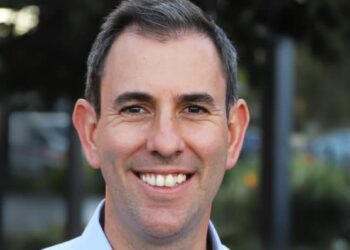Lyn Formica, head of SMSF technical and education services at Heffron, said in a recent webinar that the ATO has changed its position somewhat on the consequences of an SMSF that has failed to pay at least the required minimum pension.
“Tax Ruling 2013/5 explains the ATO view on what a super income stream is, when a super income stream commences, and when one ceases. It’s a great explanation of those concepts, and a really important ruling because a lot of those concepts aren’t defined in the tax legislation,” she said.
“So we need this ruling to guide us on how some of these things work. It’s a relatively old ruling, and some draft amendments were added to it in September 2023 which were relatively inconsequential.”
However, she said on 26 June 2024 those draft amendments were finalised, and there is one paragraph that does now cause significant concern because there are significant consequences for pensions that fail to meet the pension standards, such as failing to pay at least the required minimum pension.
Formica used an example of how the changes may affect members, using Bill, 67, who commenced an account-based pension several years ago when he retired, and his fund has been paying him the required minimum for the first couple of years.
“But on 31 March 2025, the trustee of Bill’s fund realises they’ve made a mistake. The minimum pension for 2023-24 wasn’t paid to Bill. The minimum for 2023-24 was $25,000 and for whatever reason, Bill was only actually paid $500,” she said.
“The trustee will make sure the minimum pension rule will be met in 2024-25 and future years. I’m going to assume, at this stage, the ATO doesn’t exercise their discretion to overlook the shortfall.”
Formica said looking at what the ruling originally said, or what industry has interpreted the original ruling to have said, it is evident that Bill’s fund was meeting the rules up until 1 July 2023.
“The ruling talks about the fact that the pension ceased for tax purposes at the start of the relevant financial year, which would be 1 July 2023. This pension account for Bill is treated like an accumulation account for the fund’s tax calculations. This fund isn’t entitled to exempt income in respect of this particular pension account, and because this is not treated like a pension account, because it ceased for tax purposes, the $500 that was paid to Bill is a lump sum,” she said.
“He’s over 65, his benefits are all unrestricted, so there are no issues with Bill taking a lump sum, so you don’t have any super compliance problems from that, but Bill is not going to meet the pension rules in 2024-25. The original ruling said that if the requirements are again met in the following year, this results in the commencement of a new super income stream for tax purposes, so essentially, Bill was automatically taken to have commenced another pension for tax purposes on 1 July 2024.”
She continued that this does not require much documentation and there would have been a trustee resolution to acknowledge the situation.
“We would have given Bill a new pension schedule because the earnings on that particular account would have created a taxable component and the tax-free and taxable proportions of this pension need to be recalculated,” she said.
However, she said the new ATO view is that on 1 July 2023 – the start of the financial year – the pension ceases for tax purposes and stops meeting the super rules.
“The super law rules that the $500 is still a lump sum and the fund is still treated like it’s an accumulation account, and Bill doesn’t get any exempt income in respect of that pension account for the 2023-24 year,” she said.
“But the pension has stopped meeting the rules for super law purposes even though Bill still has a contract with this trustee requiring payments to be made to him. The important part here is that a new pension doesn’t automatically start for Bill on 1 July 2024. The new version of paragraph 20 says this pension for Bill can never again generate exempt income.”
Formica continued the only way Bill will get ECPI back for this account balance is if he commutes the pension, stops his original contract and starts another retirement phase income stream, which he can’t do until he realises there is a problem.
“This is the way we’re understanding the new wording of the ATO ruling in terms of documentation. We’ll need documentation to commute the pension. We’ll need documentation to start a new pension, so it is quite a significant change.”


